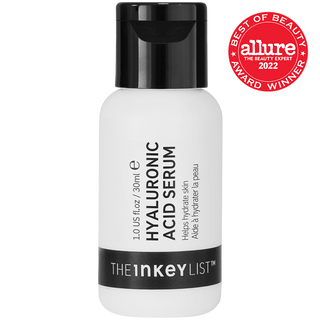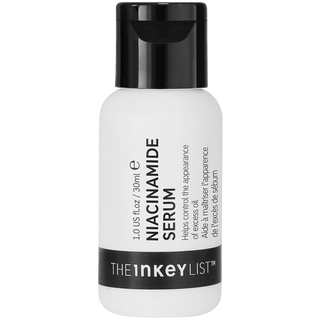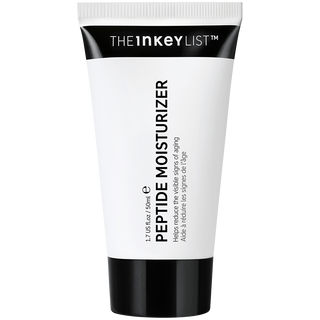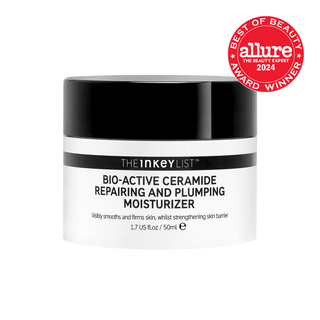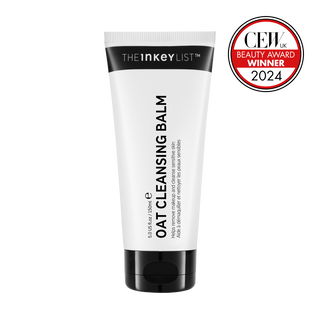How to Repair Damaged Skin Barrier: 6 Expert Tips
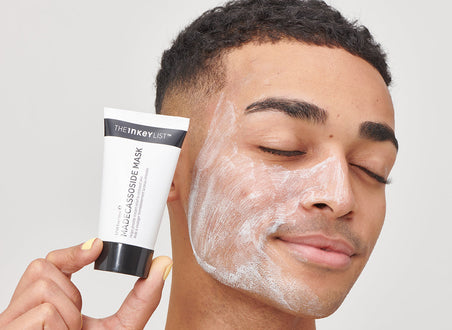
What Is Your Skin Barrier and Tips on How to Protect It
When discussing and questioning how to repair damaged skin barrier, we are referring to the outermost layer of the skin known as the epidermis. This is the top layer of skin that sits on top of the dermis - a thick middle layer containing connective tissues, sweat glands and hair follicles and the subcutaneous layer which is made of fats and connective tissue.
The skin barrier is responsible for protecting against external impactors such as free radicals, UV rays and environmental stressors like pollution and substances that may cause irritation or damage. We can think of the epidermis a bit like a suit of armor and the first point of protection.
The health of the skin barrier can directly correlate with how healthy your skin looks overall. When in good shape, your skin appears hydrated, plump and bright. If compromised, it can look dull, uneven, translucent and sagging with more visible lines and wrinkles.
What damages the skin barrier?
The most prominent affecting factors to the skin barrier would include UV exposure, dry/cold/hot climates, lifestyle influences such as smoking and diet, chemicals and products, genetics, age, hot water, over exfoliation, injury, stress and sleep deprivation. So, there’s a lot to keep in mind to protect the barrier! One of the most effective ways to build resilience is through a considered skincare routine incorporating antioxidants, ceramides and peptides. If not responded to, this can then result in increased irritation and sensitivity plus longer term damage.
When the skin barrier has been compromised it’s important to get into protect and repair mode and give some time and action to help it rebuild so as not to cause further or longer term damage. Removing harsh actives and exfoliants such as AHAs, BHAs and Retinols from your routine and keeping your routine simple is a good starting point. Continue to monitor your symptoms and, when improved, begin to gradually adjust your routine.
Signs of Skin Barrier Damage
If your barrier has been damaged, it can demonstrate symptoms such as;
- Dryness/Flakiness: a damaged skin barrier cannot retain moisture effectively, which can lead to dehydration and dryness. The skin may feel tight, rough, or dry to touch, and it might start to peel or flake.
- Inflammation: the skin may appear red, blotchy, or irritated, and may feel warm to touch, this is because a weakened barrier can allow irritants and allergens to penetrate the skin more easily, causing inflammation.
- Itchiness: the skin may feel persistently itchy, often without a clear cause, leading to scratching that can further damage the skin.
TIPS TO SUPPORT AND PROTECT YOUR SKIN BARRIER
- UV can be a huge culprit in compromising the skin barrier so building an SPF into your daily routine is critical
- Be conscious of your routine - over exfoliation and too many products can cause long-term damage to your skin barrier. For example, layering too many AHAs and BHAs can have an adverse affect on the skin and end up needing longer, more targeted attention. Build your routine up gradually to allow the skin to build up resilience to stronger products.
- Seek out ceramides to support the lipid layer which binds the cells of the barrier together and help reduce redness, itchiness and dryness.
- Cleanse - keeping dirt and impurities away from the skin reduces risk of breakouts and infections which can put stress on the skin at every layer.
- Be gentle with the skin, especially if you’re concerned it may already be damaged or sensitized. Avoid rubbing, scratching or using harsh products including scrubs.
- Diet and hydration - factoring healthy fats and fish oils into your diet and drink plenty of water to support the skin in remaining hydrated and moisturized from the inside out.
Products To Help Repair Damaged Skin Barrier
To help protect and support the skin barrier there are a number of key ingredients to build into your routine. From antioxidants and hydrators to ceramides and peptides:
Ectoin Hydro-Barrier Serum is a daily non-negotiable in every skincare routine if you’re looking to repair a damaged skin barrier. Formulated for all skin types, the dual-action formula is clinically proven to visibly improve 5 signs of a damaged skin barrier including dryness, flakiness, dullness, redness, and slackness*. Proven to work in just 15 minutes, Ectoin Serum delivers hydration up to 10 surface layers deep whilst simultaneously strengthening the skin’s barrier**.
*4-week clinical study of 26 people **Clinical study of 31 people
This easily absorbed super serum works across multiple layers of the skin, hydrating your skin, helping it appear plump and smooth, while reducing the appearance of fine lines.
Hyaluronic Acid Serum is a powerful moisture-binding ingredient that works beneath the skin surface and can hold up to 1000x its weight in water. Ensuring your skin is hydrated is essential for it to look healthy, therefore it's a must have step in every recipe! No wonder one is sold every 30 seconds worldwide.
A lightweight, power-packed serum containing 10% Niacinamide that can be easily layered into your skincare routine. This naturally occurring B3 vitamin helps to effectively reduce excess oil, blemishes and redness. Its thin consistency is formulated with 1% Hyaluronic Acid for added hydration and effective delivery.
Bio-Active Ceramide Moisturizer
Helping to strengthen skin's moisture barrier from first use, this next-generation moisturizer is an essential step to combat a damaged skin barrier. A familiar skincare ingredient, ceramides are known for their ability to form the key building blocks of a healthy skin barrier, but Bio-Active Ceramides go beyond barrier repair to help reset, strengthen, and protect the skin through multiple layers.
Oat Cleansing Balm
This deeply nourishing balm cleanser is both non-stripping and non-drying making it suitable for all skin types including sensitive. The formula combines Oat Kernel Oil, a rich, natural oil containing ceramides and omega 3 and 6 fatty acids to help protect, soften, and soothe, together with Colloidal Oatmeal which helps to reduce the appearance of redness by soothing and comforting dry, tight, or sensitive skin.
Contact the team at askINKEY to build a recipe to support your skin barrier or answer any questions or queries.
FAQs
What is the skin barrier, and why is it important?
The skin barrier is responsible for protecting against external impactors such as free radicals, UV rays and environmental stressors like pollution and substances that may cause irritation or damage. Think of your skin barrier a bit like a suit of armor and the first point of protection. The health of the skin barrier can directly correlate with how healthy your skin looks overall.
How can I tell if my skin barrier is damaged?
If your barrier has been damaged, it can demonstrate symptoms such as dryness, flakiness, inflammation, and itchiness. In some cases, a damaged skin barrier can also increase sensitivity and breakouts.
What are common causes of a damaged skin barrier?
There are several causes of a damaged skin barrier but the most common include UV exposure, dry/cold/hot climates, chemicals/products, over exfoliation, stress, sleep deprivation and lifestyle influences such as smoking and diet.
What steps can I take to repair a damaged skin barrier?
One of the most effective ways to repair and strengthen a damaged skin barrier is with a barrier-boosting skincare routine. Key ingredients to look out for include antioxidants, ceramides, and peptides. Try adding a gentle, hydrating, and nourishing cleanser to your routine as well as keeping on top of your hydration levels, as the skin’s moisture barrier functions at its best when it is properly hydrated. And lastly, but probably most importantly, always remember your SPF – even when it’s raining and cloudy


